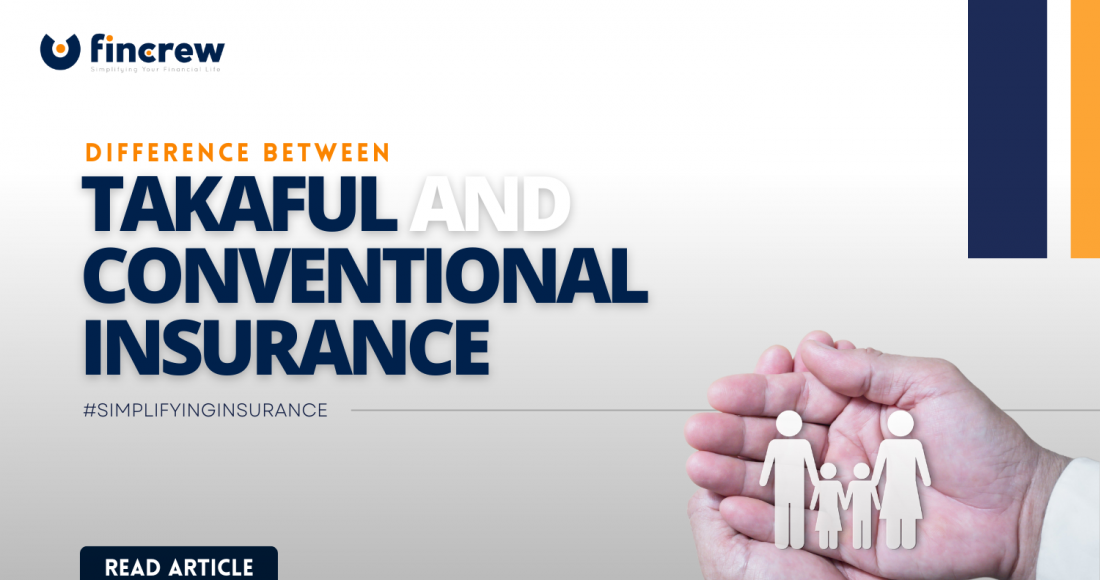A critical aspect of a responsible financial plan is to insure yourself. The choice between Takaful and conventional insurance is a dilemma many Malaysians may face. Both of them share the objective of protecting against financial loss, so they appear similar at first glance. A closer examination, however, reveals some significant differences.
What Is Takaful?
Takaful is defined as a joint guarantee. Essentially, it is an insurance policy based on Islamic principles. Takaful is a concept in which a group of people guarantees one another against loss or damage. Each participant contributes a certain amount of donation (tabarru) to a fund to fulfill their obligation. This fund is managed by a third party – the Takaful operator. The Takaful operator will compensate losses or damages per the agreement with its participants. A surplus is distributed only after the obligation of assisting the participants has been met. Takaful acts as a protection and profit-sharing venture between the Takaful operator and its participants through this principle.
How Does Conventional Insurance Differ From Takaful Insurance?
One of the most significant differences between Takaful and conventional insurance is that Takaful is based on Shariah law? Takaful is free of gharar, maisir, and riba. The main reason for the creation of Takaful was to eliminate these prohibited elements from traditional insurance. In conventional insurance, the insurer bears the risk associated with the insured. By contrast, Takaful is based on the theory of shared risk. Participants donate to a Takaful fund, and in the event of a loss, they receive the amount of their claim. In addition, Takaful participants retain an ownership interest in the fund, unlike conventional insurance. The participants’ contributions are invested into halal or sharia-compliant funds to earn investment income. When the Takaful operator generates a surplus, the participants and, sometimes, the Takaful operator will share. It puts everyone in a win-win position. The table below compares Takaful insurance to conventional insurance:
| Takaful Insurance | Conventional Insurance |
| Based on cooperation | Based solely on commercial factors |
| Governed by Shariah and government laws | Governed by government laws only |
| Shareholders and Takaful plan holders can only invest in Shariah-compliant investment funds | Conventional insurance premiums are invested in funds and investment channels that aren’t necessarily Shariah-compliant |
| Unfettered by interest, gambling, and uncertainty (Riba, Gharar, and Maysir) | It has elements of interest, gambling, and luck |
| Takaful risks are distributed among participants who agree to assume risk jointly | Risk is from an individual to a conventional insurance provider |
Is Takaful Better Than Conventional Insurance?
Although takaful insurance isn’t physically cheaper than other forms of insurance, it may be more affordable in terms of its extra risk premiums. In harsh situations that would result in fund losses, takaful fund rates are usually fixed, and people prepared to take on additional risk are not always charged more. An individual with severe health conditions may be asked to increase his contribution to medical Takaful. Conventional insurance will charge more where additional risks have been identified (e.g., people in dangerous professions and smokers).
Can Non-Muslims Purchase Takaful?
While Takaful is based on Islamic principles, it is not a religious product, and anyone, including non-Muslims, can purchase it. Non-Muslims are increasingly beginning to participate in Takaful and Islamic finance products.





